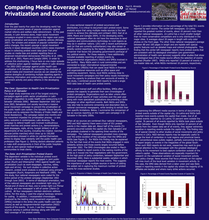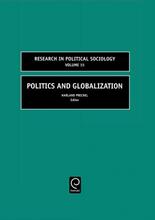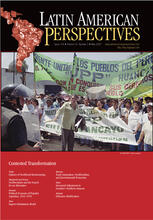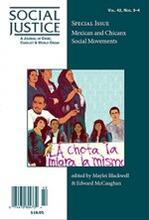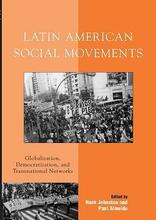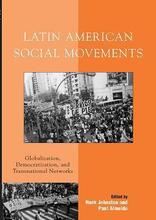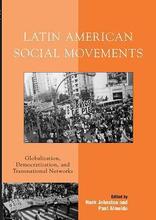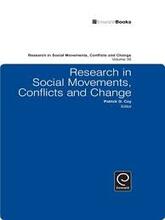Purpose – This study identifies the multiple contributions of the Salvadoran women’s movement in sustaining mass mobilization under the threat of public health care privatization.Methodology/approach – A case study methodological approach shows how the emergence of an autonomous women’s movement in El Salvador in the late 1980s and early 1990s ‘‘spilled over’’ (Meyer & Whittier,1994) to assist in the maintenance of the health care campaigns in the late1990s and early 2000s.
Publications
2008
2007
Over the past twenty-five years the developing world has experienced several waves of popular contention against market reforms and welfare state retrenchment. In the past decade, in Latin America alone, major social movement campaigns erupted in every country in the region over public sector privatization and economic austerity policies (Almeida 2007). For scholars and analysts of popular contention and policy changes, this recent upsurge in social movement activity in lesser-developed countries (LDCs) raises important issues in collecting protest event data given that prior studies on media bias and protest reporting focus on advanced industrialized democracies (McCarthy et al. 1996; Smith et al. 2001; Myers and Caniglia 2004). In order to address this shortcoming, I focus here on one major episode of collective action against neoliberal reform in Latin America – the 2002-2003 campaign against public health care privatization in El Salvador. By comparing the coverage of several media and movement sources we can observe the relative strengths of combining multiple reporting agents in gathering information and constructing data sets on social movement activity and policy reforms in the developing world.
The paper addresses a core question in the literature on states and political challenges from excluded social classes: how is large-scale collective action possible against repressive governments in the global periphery? Using the case of El Salvador’s 1932 peasant-worker uprising, the paper contributes to theories of organizational expansion and radicalization in nondemocratic settings. The case study suggests that periods of regime liberalization deposit organizations in civil society that persist beyond the political opening in the system. Combining historical materials with logistic and hierarchical linear modeling (HLM), it is found that the political threats constituting liberalization reversals provide negative incentives for surviving reform-minded organizations to attempt revolutionary forms of collective action in more hostile political environments.
In the current wave of defensive collective action across Latin America in response toneoliberal globalization, working-class groups appear most frequently in the documentedprotest events. The new wave of popular movement activity emerged in the region in thelate 1990s and early twenty-first century and is driven by the erosion of the economicand social benefits previously available to the popular classes during the period of stateleddevelopment.
Examinamos tres campañas contra la puesta en pr\ actica de las pol\ ıticas neoliberales de la segunda fase en Am\ erica Central para determinar mejor los diferentes tipos de situaciones en las cuales los movimientos que desaf\ ıan las reformas inducidas por la globalizaci\ on, influyen en el avance y el car\ acter del proceso de implementaci\ on de la pol\ ıtica
2006
What accounts for the varying outcomes of popular struggles that contest the character and content of neoliberal reforms throughout the developing world? We examine three campaigns against the implementation of second-phase neoliberal policies in Central America to better assess the kinds of situations in which movements challenging globalization-induced reforms influence the pace and character of the policy implementation process.
2005
The article focuses on varying protest intensities of social movement activistsin an authoritarian political environment. Drawing on a sample ofparticipants in El Salvador’s El movimiento popular, the paper examineshow structural location in the resistance movement’s multi-sectoral organizationalinfrastructure shapes the level of participation. Those motivatedby state repression and maintaining multiple or cross-sectoralorganizational ties exhibited higher levels of protest participation. Thefindings suggest that more attention be given to how the multi-sectoralnetwork structure of opposition coalitions induces micro-mobilizationprocesses of individual participation in high-risk collective action.


